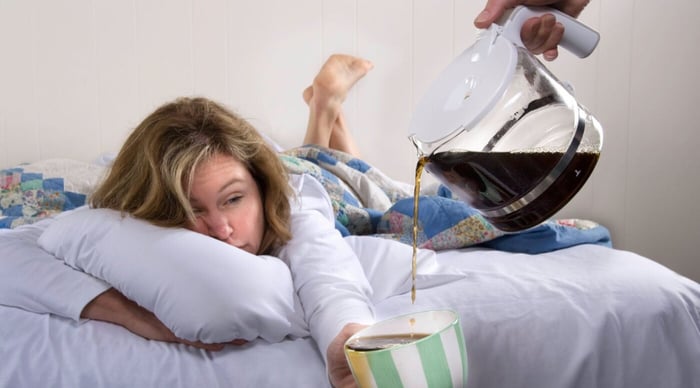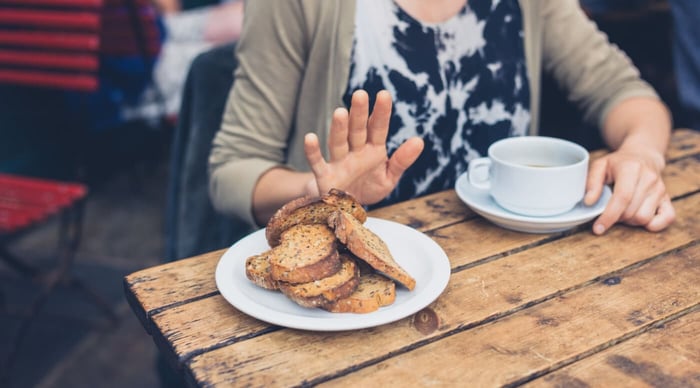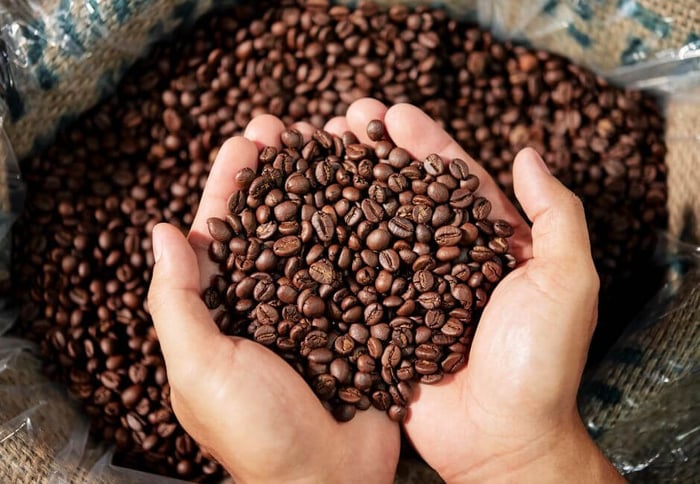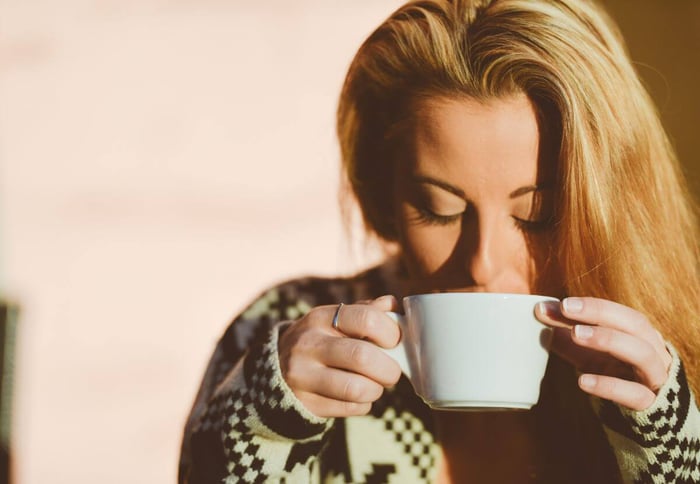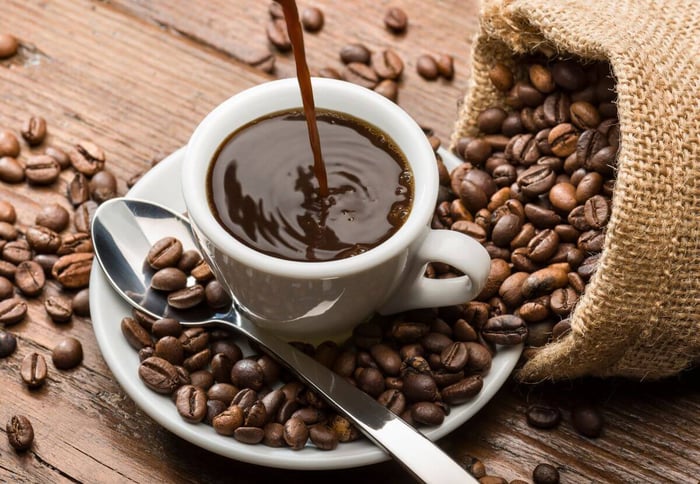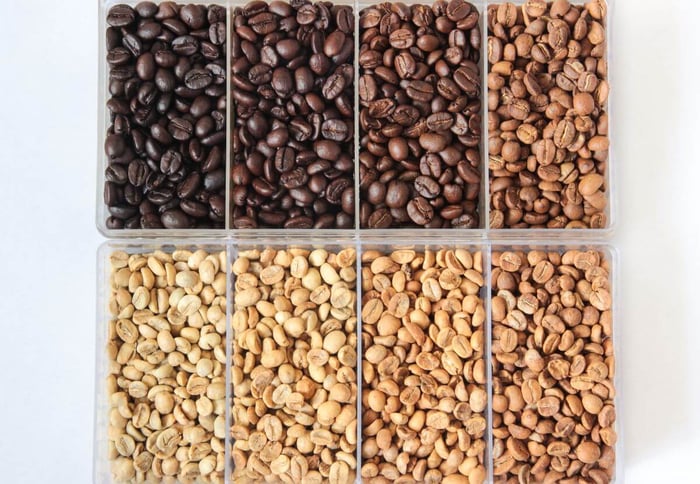The Surprising Reason Why Coffee Can Make Us Feel Drunk
Do you ever feel like you're on top of the world after a cup of coffee, only to crash and burn a few hours later? You may have experienced what's known as the "coffee drunk" feeling.
It's not exactly the same as being drunk on alcohol, but there are similarities in how it affects us. So why does coffee make us feel this way?
The Power of Caffeine
One of the main culprits behind coffee's ability to make us feel "drunk" is caffeine. Caffeine is a powerful stimulant that can affect our brain and body in many ways. When we consume caffeine, it enters our bloodstream and travels to our brain.
Read: How Much Caffeine is in a cup of coffee?
Caffeine and Neurotransmitters
In the brain, caffeine works by blocking a neurotransmitter called adenosine. Adenosine is responsible for promoting sleepiness and inhibiting wakefulness.
By blocking adenosine, caffeine can increase alertness and energy levels.
But that's not all - caffeine also stimulates the release of other neurotransmitters like dopamine and norepinephrine, which play a role in mood regulation, motivation, and focus.
Adenosine: The Sleep-Wake Regulator
Adenosine is an important molecule that helps regulate our sleep-wake cycle. It accumulates in our brains throughout the day as we expend energy, eventually leading to feelings of drowsiness and fatigue at night.
When we drink coffee (or other sources of caffeine), it blocks adenosine receptors in our brains from receiving signals that promote sleepiness. This can lead to feelings of increased alertness and energy.
So next time you experience that "coffee drunk" feeling after your morning cuppa Joe or mid-afternoon espresso shot, remember that there's a scientific explanation behind it. The caffeine in coffee is affecting your brain and body in powerful ways, altering your mood, focus, and energy levels.
Caffeine's Effects on the Brain and Body
Caffeine is a natural stimulant that affects the central nervous system. When we consume caffeine, it is quickly absorbed into our bloodstream and travels to our brains.
Once in the brain, caffeine blocks the action of adenosine, a neurotransmitter that promotes sleep and suppresses arousal. It accumulates in our brains throughout the day as we expend energy, eventually leading to feelings of drowsiness and fatigue at night.
This leads to increased alertness and energy, so many people turn to coffee as a pick-me-up when they're tired.
How Caffeine Affects Neurotransmitters and Hormones
Caffeine doesn't just block adenosine; it also affects other neurotransmitters in our brains. It increases the levels of dopamine, norepinephrine, and serotonin, all of which play a role in mood regulation and motivation.
In addition to its effects on neurotransmitters, caffeine also stimulates the release of adrenaline, a hormone responsible for our "fight or flight" response. Adrenaline increases heart rate, blood pressure, and respiration rate - all physical responses that can make us feel more awake and energized.
Overall, caffeine has numerous effects on both our brain chemistry and hormone levels. These effects can lead to increased alertness and energy levels when consumed in moderation but can cause negative side effects such as jitters or anxiety when consumed excessively.
Adenosine: The Sleep Regulator
How caffeine blocks adenosine receptors, leading to increased alertness and energy
Caffeine works by interfering with the effects of adenosine on the brain. By blocking adenosine receptors in the brain, caffeine prevents adenosine from binding to those receptors and signaling to the body that it's time to slow down and rest.
As a result, the body produces more adrenaline and other stimulating hormones, which increase heart rate, blood pressure, and energy levels.
However, this effect is only temporary. Eventually, as more caffeine is metabolized by the body over time with each cup of coffee consumed throughout the day or night or when you consume too much at once, adenosine builds up again leading you back towards drowsiness or fatigue.
Dopamine: The Pleasure Chemical
The neurotransmitter dopamine is often called the "pleasure chemical" because of its role in reward-motivated behavior.
Dopamine affects our mood, motivation, and pleasure sensations. It plays a crucial role in the brain's reward system, which is responsible for reinforcing behavior that leads to positive outcomes.
What dopamine is and how it affects our mood and motivation
Dopamine is a neurotransmitter released by nerve cells in the brain. It acts as a chemical messenger between neurons, helping to transmit signals throughout the central nervous system.
Dopamine plays a key role in regulating our feelings of pleasure and happiness, as well as our motivation and drive.
When we experience something pleasurable or rewarding - like eating delicious food or receiving praise for a job well done - our brains release dopamine.
This surge of dopamine creates feelings of pleasure and reinforces the behavior that led to that positive experience.
How caffeine stimulates dopamine release, leading to feelings of pleasure and reward
Caffeine has been shown to increase dopamine release in the brain by blocking adenosine receptors - as mentioned in the previous section - which normally inhibit dopaminergic activity. By preventing adenosine from doing its job, caffeine lets dopamine flow more freely.
This increased availability of dopamine can lead to heightened feelings of pleasure and reward when we drink coffee. That's part of why we might feel so good after sipping on a hot cuppa joe!
However, it's worth noting that excessive caffeine consumption can actually lead to decreased sensitivity to dopamine over time, making it harder for us to feel those same pleasurable effects from coffee after prolonged use. Overall, caffeine's effect on our brains is complex and multi-faceted.
By acting on multiple neurotransmitters - including adenosine and dopamine - it can have a powerful impact on our mood, motivation, and cognitive performance. It's no wonder coffee is such a beloved drink for so many people!
Other Factors That Can Contribute to Feeling "Coffee Drunk"
Individual sensitivity to caffeine
Everyone reacts differently to caffeine. Some people can drink coffee all day and feel no effects, while others may feel jittery after just one cup.
This is because our bodies metabolize caffeine at different rates, and some people may have a genetic predisposition for metabolizing it more slowly or quickly than others. Additionally, factors like age, weight, and overall health can also affect how sensitive we are to caffeine.
Amount of coffee consumed
It's no surprise that the more coffee you drink, the more pronounced its effects will be. However, what may surprise you is that there isn't necessarily a set amount of coffee that will make you feel "coffee drunk".
For some people, just one cup of strong coffee can cause jitters and anxiety, while others may need several cups before feeling any effect at all. It's important to pay attention to your own body's reactions and adjust your coffee consumption accordingly.
Fortunately, we have an entire section dedicated to how much caffeine is in your favorite products.
Time of day when coffee is consumed
The time of day, when you consume your coffee, can also affect how it makes you feel. Drinking a lot of coffee late in the evening or at night can disrupt your sleep quality and make it harder for you to fall asleep or stay asleep throughout the night.
This is why it is important to understand how long caffeine stays in the human body after consumption.
Conversely, drinking your morning cup of joe earlier in the day can help boost your energy levels and keep you alert throughout the morning hours. It's best to experiment with timing your caffeine consumption based on what works best for your individual schedule and needs.
Final Thoughts on Why Coffee Can Make Us Feel Drunk:
While many people enjoy the energizing effects of coffee, it's important to be aware of its potential side effects. Consuming large amounts of caffeine or drinking coffee later in the day can interfere with sleep patterns and lead to feelings of restlessness or anxiety.
However, when enjoyed in moderation and at appropriate times, coffee can provide a natural energy boost and even offer some health benefits, such as improved cognitive function and reduced risk for certain diseases.
Overall, coffee's ability to make us feel "drunk" is due to its impact on neurotransmitters like dopamine and adenosine.
While individual sensitivity to caffeine can vary widely, it's clear that caffeine has a powerful effect on our bodies and brains. So go ahead - enjoy your cup of joe - but do so mindfully and responsibly!

